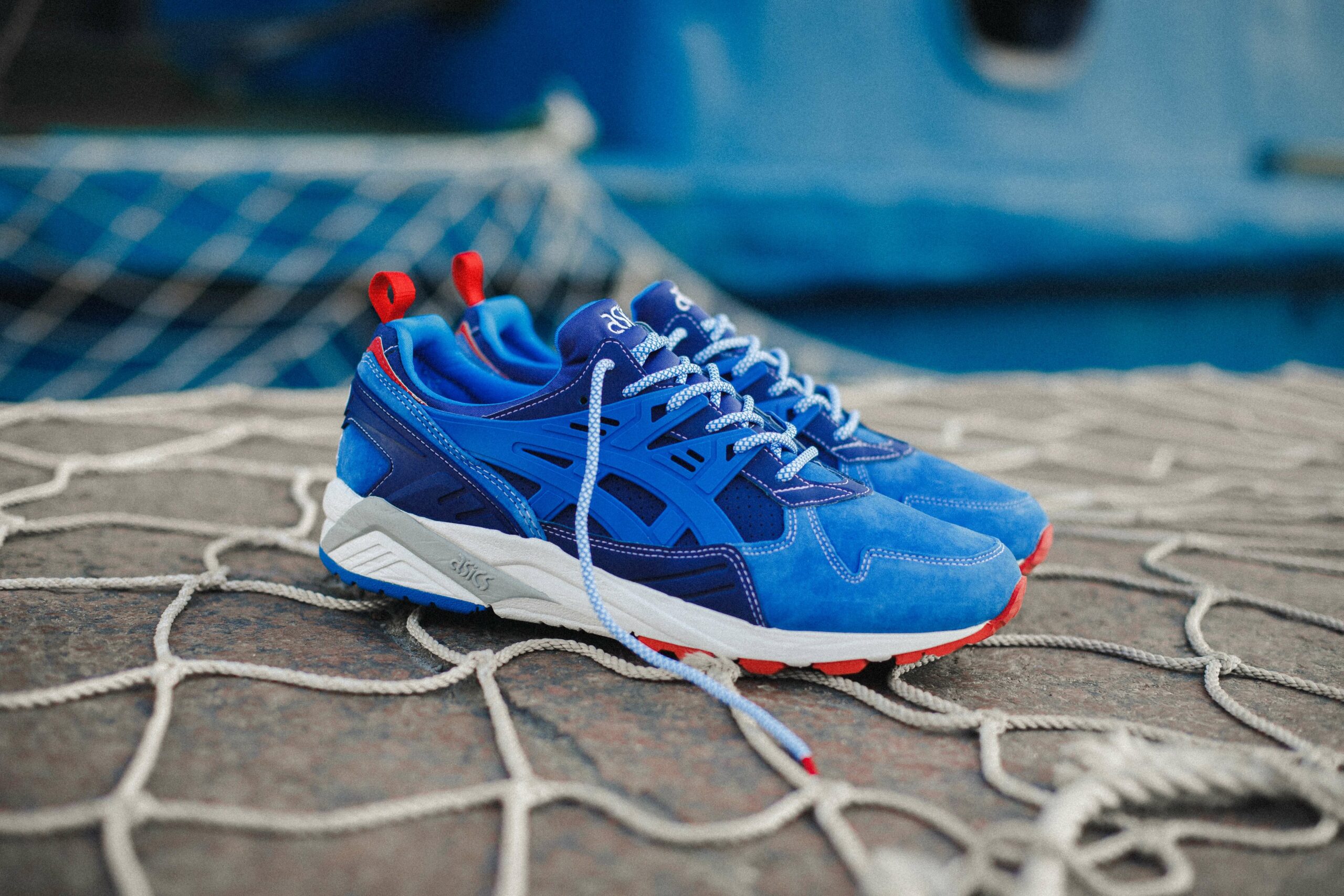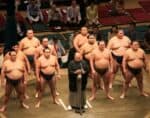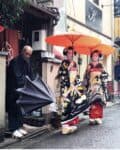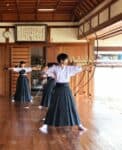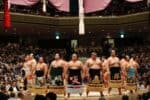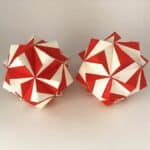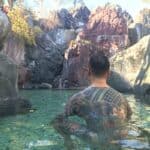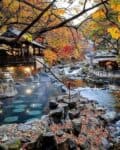After a long day exploring Japan, taking in the sights, trying the food, and living the experience an inviting and relaxing bath in an onsen hot spring might be the perfect way to round off the day.
But are onsen hygenic? Hygiene levels at onsen are usually very high and you are required to clean yourself and rinse before entering the onsen which significantly reduces the likelihood of the water being dirty. Alongside consistent cleaning throughout the day and a thorough deep clean at night, onsen are very hygienic.
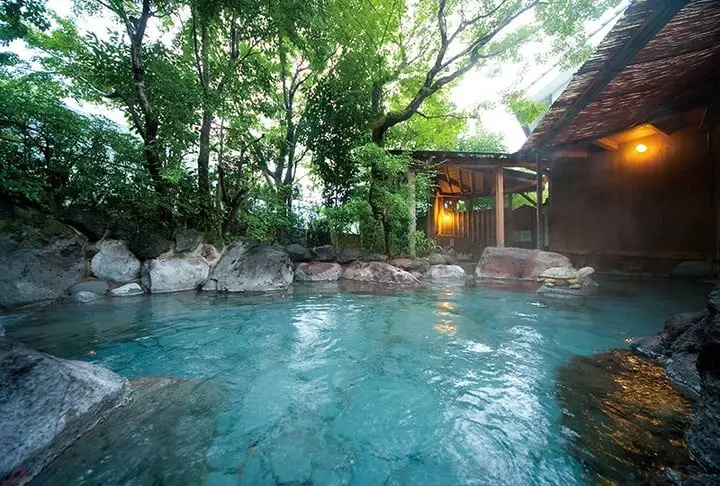

It’s important to understand the difference between hygiene and cleanliness. In order to keep yourself safe, this article has everything you need to know about onsens.
How Are Onsen Cleaned?
A lot of the dirt and filth that would find its way into a bath would come from the human body. In Japan, it is customary to shower and clean yourself before you enter the bath.
While it may be the case in the West that you would take a bath to clean yourself, this is not the case in Japan. You take a bath to relax, onsen in particular is used for its natural, unfiltered water.
Already the exposure to dirt is greatly reduced by the practice of showering clean before use. If you properly clean yourself before entering the hot spring, you can help keep it clean. If everyone practices this then the amount of dirt finding its way into the water is dramatically decreased.
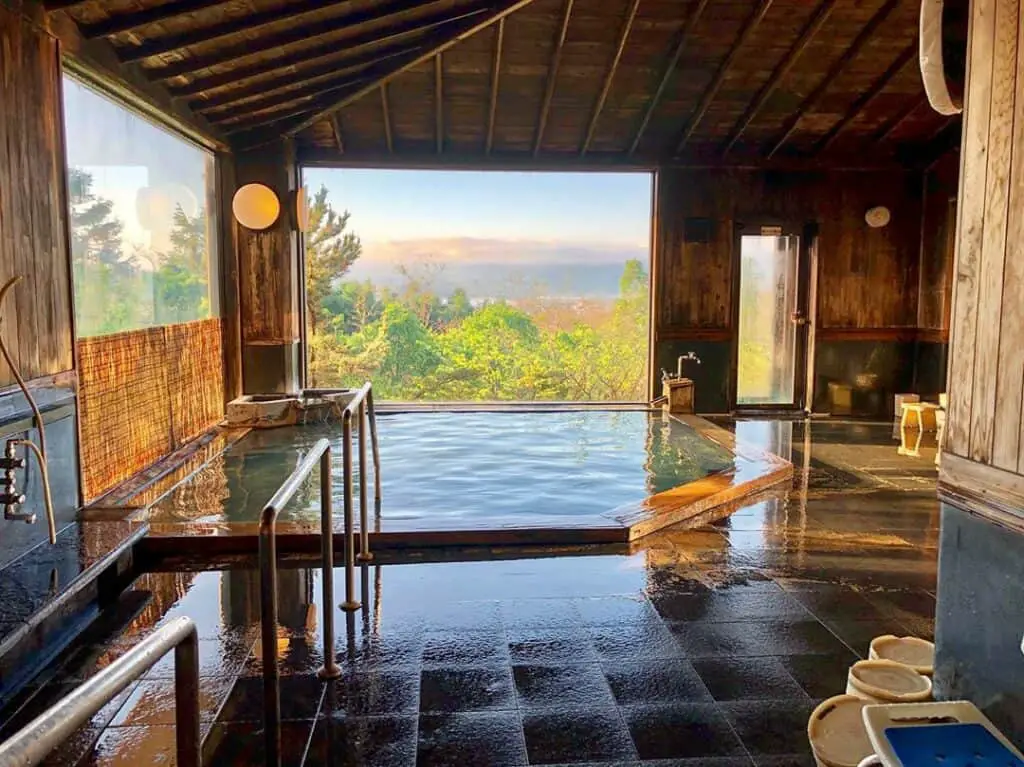
Onsen water is constantly circulated, which helps to keep the water clean. Operators will also regularly clean the baths, at least once every 24 hours but it can be several times a day.
Cleaning can occur throughout the day; staff will be trying to keep a good hygiene standard. However, during the time the bath is closed, typically early morning, a deep clean will take place.
At some bathhouses, they employ the use of chlorine to help keep the water clean. Chlorine is a very popular chemical used in the west to disinfect water. It kills bacteria, and as it naturally occurring it is the perfect disinfectant for swimming pools.
While it certainly is not as common among Japanese bathhouses, some do make use of it. It is less required at water-rich bathhouses with a thorough cleaning regime. This is because the water is much less likely to be recycled.
The term for non-recycled water is “kakenagashi.” If you are concerned about the quality of the water, ask the operator if they use kakenagashi water. If they answer yes, then you know the water isn’t recycled.
Other questions you may want to check with the bathhouse are:
- How much water flows out of the fountain per minute?
- Are the hot springs heated naturally or artificially?
- How are the baths cleaned?
There are many different types of bathhouses, ranging from hot spring villages to simple inns. Therefore, onsen quality can vary between places. By asking the right questions you can gauge that for yourself.
What Are the Health Benefits of Using Onsen Baths?
Natural hot springs are known for their healing qualities throughout the world. Whether in Iceland or Japan, the use of hot springs has been used for centuries as a way to relax and promote health.
The minerals that can be found in hot springs can help your body with its functions. Your body absorbs these minerals through the skin, and they can supercharge hormone secretion and other incredible benefits.
By bathing in onsen, the body is warmed up. With that comes a bunch of benefits known as the thermal effect. Blood circulation is improved, as your blood vessels expand thus helps to relieve any muscle and joint pain.
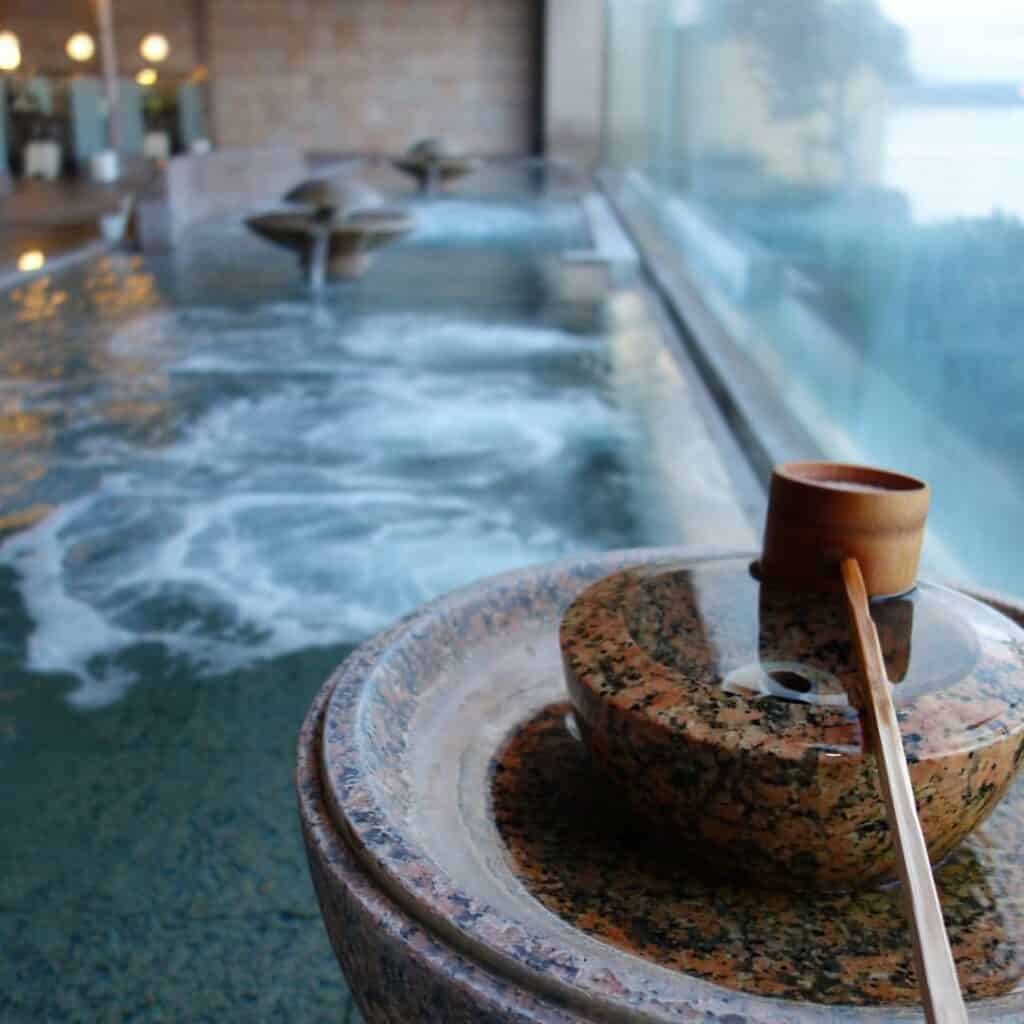
As well as better blood circulation, your metabolism will increase. This will have a positive effect on both your health and beauty. You will also help your body’s immunity, as raising your body heat by one degree has excellent benefits.
To really feel these benefits, the best advice is to not spend too much time in the water at once. Rather than staying in the water for a prolonged period, reduce it to a few minutes. Once you are out and have cooled down a little, get back in.
There’s no set rule for this, although each onsen will advertise their preferred method. Everyone’s body is different so it’s needs will differ, that includes time spent in the water. A good rule is if you start to sweat, then it’s time to get out.
For those among us who are dealing with stress, onsen provides a great way to destress. Onsen baths are meant to be incredibly relaxing experiences. They should allow for your stress to be released and can even aid with a good night’s sleep.
You may find that you float well in onsen water. This also has a tremendous effect on the body. Buoyancy helps the body relax, the pressures of gravity are reduced, and muscle tension is relieved.
This helps not only your body to relax, but your mind can relax too. Taking an onsen bath not only helps you deal with physical stress but mental stress as well.
By submerging your body in hot water, you can also stimulate your parasympathetic nerves. This is your nervous system that is responsible for your body’s rest and digestion while you are relaxing or resting. The extra stimulation will help to slow your heart rate down and promote relaxation throughout your body.
Your legs will also benefit from this change in pressure. Legs contain approximately a third of your total blood volume. While the effects of the change of pressure will send the blood back towards your heart. This helps the overall flow of blood through the veins in your legs.
Your skin is the largest organ the body has got, you can help improve its condition by utilizing onsen baths. Give some consideration to the type of bath you use as they have different effects.
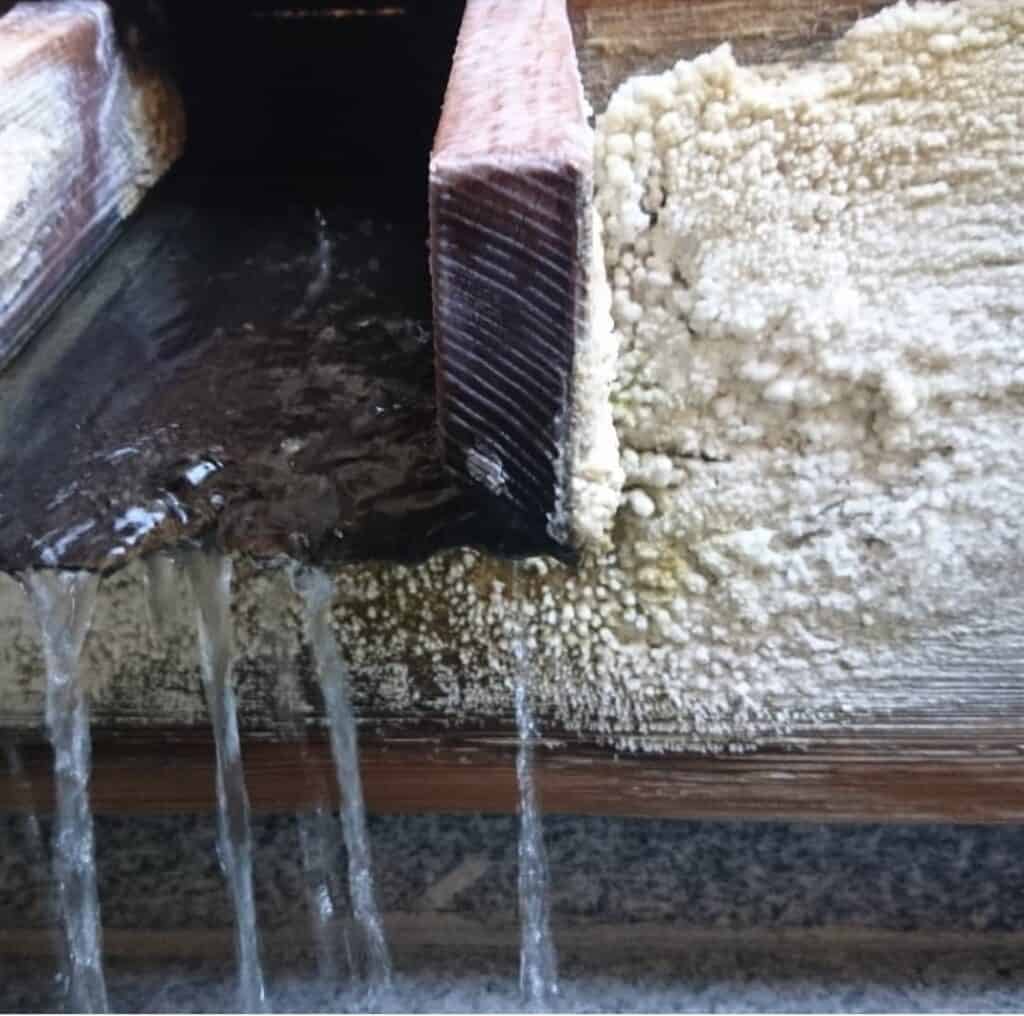
For example, acidic hot springs are great for people suffering from skin irritations like eczema. That’s because acidic water has antibacterial effects.
Coupled with bactericidal is the natural peeling effect that acidic hot spring water has on your skin. It can soften and even dissolve old calluses on your skin, helping your skin to rejuvenate.
For those with sensitive skin, be sure to rinse well afterward as it’s effect can be too good for your skin. You can still enjoy a dip in acidic hot springs, just need to rinse the water off well after.
Alkaline hot springs on the other hand have a natural cleansing effect. They can make the skin very smooth, helping to remove the oils from your skin.
There is such a thing as too much here as well. A spring with a particularly high alkaline level can end up removing too much of the oils. In these instances, make sure to rinse afterward and apply moisturizing lotions.
Many of the hot springs in Japan contain high levels of magnesium. When absorbed through your skin it helps to stimulate enzyme activity within your cells. This helps to detox the body.
With the increased metabolism, better blood circulation, and higher enzyme activity, the body can purge itself of toxic substances. This is particularly useful to promote recovery from fatigue. Consider a labor-intensive day, your whole body may ache, but a dip in the hot spring can aid your body’s recovery.
What Are the Risks of Using Onsen Baths?
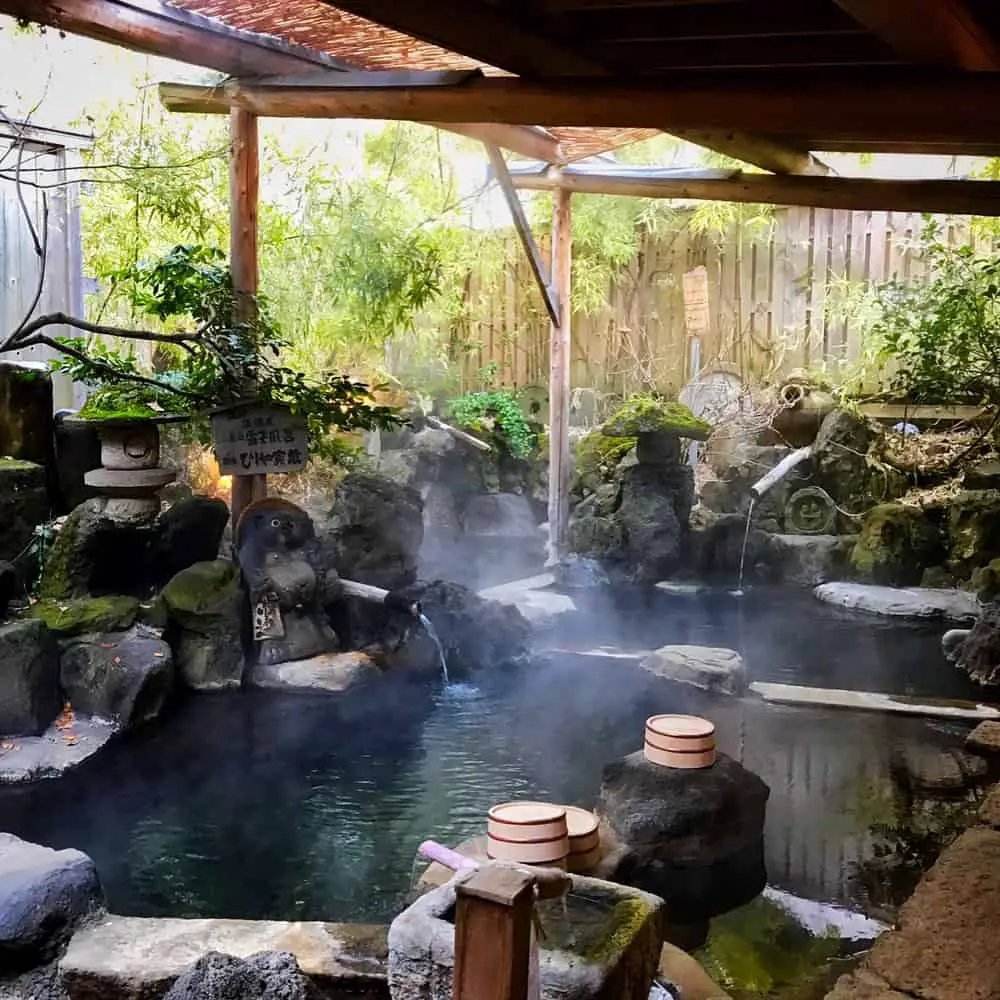
There are a few things that you should know about using onsen and the side effects of doing so. Onsen may be found all over Japan, ranging into the thousands. Regulars of these shared hot springs praise the health benefits.
While many people bathe in onsen each year with absolutely no side effects. There are still some things to be cautious of while using onsen. By learning about these potential side effects, you can prepare yourself for your first hot spring experience.
The following list is in no way intended to put you off bathing in onsen water. Merely to inform you of the full picture, you should feel empowered to ask the onsen operator about how it is maintained.
Many onsens will have signage displayed asking people not to use the hot springs if they have any open cuts, sores, or lesions. This isn’t just recommended for onsen, rather any sort of body of water that is shared. These are some risks associated with onsen:
- High Blood Pressure – for people suffering from high blood pressure, using a hot bath is not recommended. Hot water causes your blood pressure to rise, so those with high blood pressure risk pushing it too unsafe levels.
- Poor Sanitation – there have been numerous reports of bad sanitary practices among nonsense, with Legionella bacteria being found. This can make you ill with flu-like symptoms. There are improved regulations nowadays, but it is certainly worth reading reviews for your intended dip.
- Too Hot – these are hot springs and they can certainly live up to the name. These bodies of water are heated naturally by the earth. Burns can occur so be diligent and check the temperature before you submerge.
- Dehydration – heat can dehydrate the body. So make sure you are well watered before you enter, but also don’t overstay in the bath.
- Dizziness – as a result of dehydration you may find yourself feeling dizzy. Particularly when you first get out of the hot spring.
- Infections – infectious diseases can be passed to another person via water. This is why signage warns against people with open cuts from using the baths.
By being vigilant you can keep yourself while trying out the hot springs. The sanitation levels do vary from bath to bath. It would definitely be worth checking reviews before you attend.
Millions of people make use of onsen baths, some people even use them daily without any incident. Some operators have added chlorine into the baths to fight bacteria. Others replace the water regularly.
So, there are definitely precautions that take place. If proper onsen usage is applied, then the chance of the above risks occurring is significantly lowered.
Onsen Etiquette
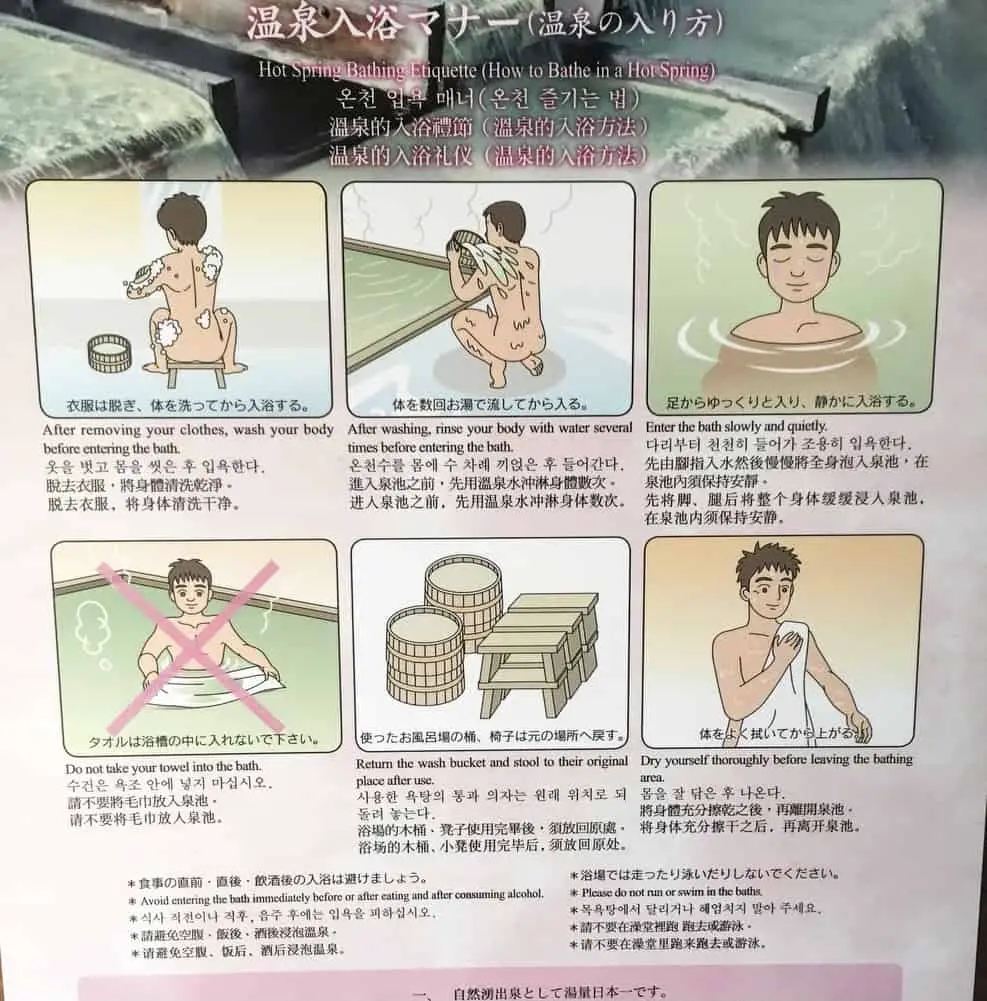
As a guest visiting an onsen, you will be expected to wash properly and rinse yourself thoroughly before proceeding to the hot spring. It would be incredibly poor social practice to enter the onsen water while dirty, or even with visible evidence of soap on the body. Therefore, you must ensure that you are washed and rinsed completely.
The bathing stations you would find at onsen are usually well equipped. There will be faucets, buckets, stools, the appropriate soaps and shampoos, and even a detachable showerhead. Make good use of the services before heading down for your dip in the water.
It is not typical to wear a swimsuit to an onsen. In many places, this isn’t actually allowed in the first place. However, it has become slightly more common among some modern onsen, that are part of a water park.
For those worried about being naked in an onsen, you are permitted to use towels. For a man, typically a small towel will be used to cover your privates. But for a woman, a full-size towel can be worn while moving around.
Rules vary between onsen about whether you can wear your towel into the bath or not. A lot of onsen will have signs around strictly prohibiting this. However, it is considered unclean to submerge your towel in the water.
Be careful of your noise levels while visiting the hot springs. By their very nature, they are intended for relaxation. Noise levels do differ between locations, some may play piped music, while others allow their fountains to provide the ambiance.
It does not have to be a silent experience however, conversations can happen. But excess noise and rowdiness is not tolerated. An exemption is made for children, who may have excess energy or want to splash around.
People with tattoos may experience some trouble being admitted into an onsen. Over half of all onsen operators have banned entry to people with tattoos. The practical reason for this was to keep out people from gangs, such as the yakuza, as they tend to have significantly sized or full-body tattoos.
This is not the case at all onsen however, around 30% of all operators do not mind people with tattoos. Other operators will admit people with the caveat that tattoos are covered. You can use a towel, plaster, or use a patch.
As tourism grows in Japan, more operators see loosening the rules around tattoos. Particularly for foreign customers. So, you may not have any issues, but it will be worth checking before you visit.
Should You Visit an Onsen Hot Spring?
It is definitely worth remembering that although some risk does exist, millions of people visit onsen each year. There are very few incidents and most onsen are operated with a high degree of hygiene.
There numerous health benefits for visiting onsen that definitely seem worth the visit. It can help to rejuvenate your skin and distress your entire body at the same time. It has many of the same health benefits as visiting a sauna or steam room.
Unlike a sauna, it does also have the added benefit of buoyancy. Which helps to relax muscle tension throughout your body. If you are visiting Japan, and walking a lot during your time there, spending the evening reading in an onsen will keep you match fit for the next day.
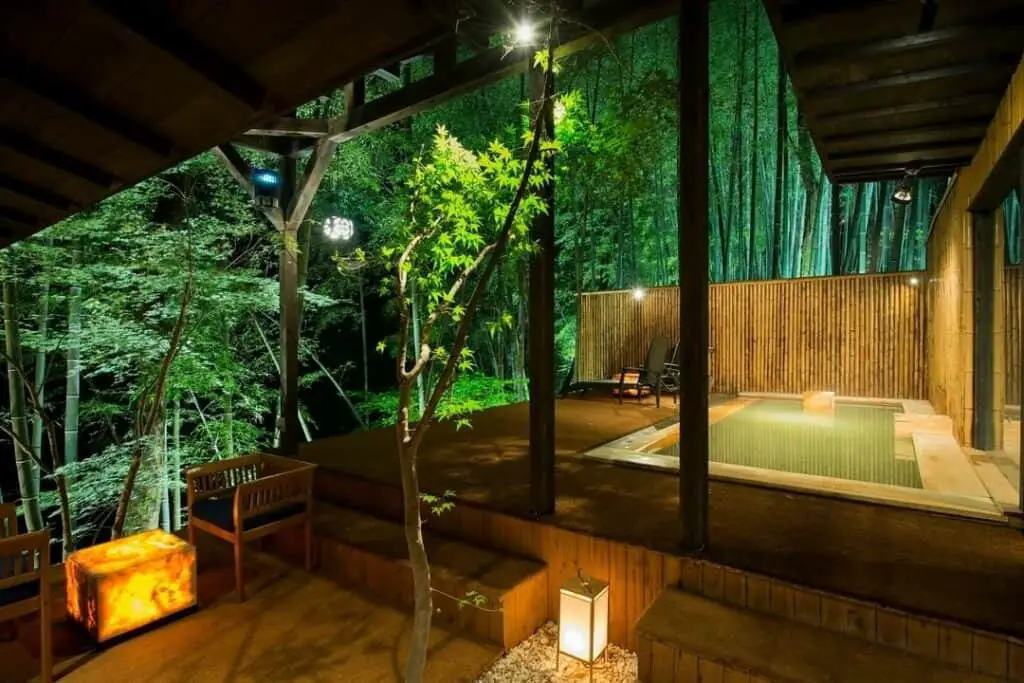
To really maximize your relaxation, you should take a visit to the specific sightseeing hot spring towns. These exciting getaways are the perfect place to rejuvenate your body.
Kinosaki Onsen is one such town, with a history of over 1,300 years. This is a popular resort area with seven public onsen bathhouses. Other towns also include Togura Kamiyamada Onsen and Akanko Onsen.
Onsens have existed for centuries and are a wonderful part of Japanese tradition. The emphasis is on relaxing, so it’s not an experience that should be skipped out on. You will be able to find onsen throughout the islands.
As Japan is a volcanically active area, these hot springs are able to flourish all over. Geothermically heating the hot spring, onsen is a terrific treat for your mind and body.
No matter where in Japan you visit you should be able to find ryokans, a traditional Japanese inn with communal baths. They are less common in big cities like Tokyo as modern hotels are better value.
However, they can still be found within cities, but particularly in rural Japan. These ryokans are ideal locations to stay and experience an onsen. Not all of them will have naturally occurring hot spring water.
Although many are built around hot spring areas, some are in locations where there aren’t any. In these instances, they will add minerals to the water, but there is a higher chance of recycling the water.
Whether you decide to visit a ryokan in Tokyo or visit an onsen town like Kinosaka, give your body the rest it deserves.


